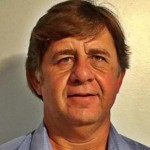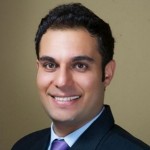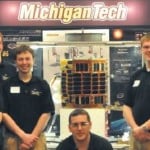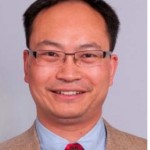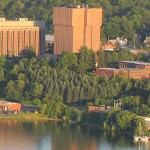 The ME-EM Graduate Seminar speaker on Thursday, October 29 at 4:00 in 641 Dow will be Dr. Robin Johnson-Cash, Lecturer, Eastern Michigan University and Technical Training Manager, Ford Motor Company
The ME-EM Graduate Seminar speaker on Thursday, October 29 at 4:00 in 641 Dow will be Dr. Robin Johnson-Cash, Lecturer, Eastern Michigan University and Technical Training Manager, Ford Motor Company
Title: The Discipline of Experimentation
Engineers design, build and maintain machines, communication systems and major public works. Without them, our technological society would collapse. The engineering discipline focuses on solving problems through applied physics. To find a solution, engineers study a problem, use mathematical models to understand it, model possible solutions and use well planned physical experiments to validate their proposed remedies. Throughout the entire engineering process, the engineer must maintain meticulous records. Reviewing detailed experimental notes provides insight into the nuances of a problem and helps optimize solutions. Once the experiment is complete, the records allow others to understand the nature of the problem and build upon what the engineer learned. This presentation will encourage you to develop the habit
of recording meticulous notes while you learn the art of experimental problem solving.
Robin Johnson-Cash is a native Detroit, Michigan. She holds a Bachelor of Science in Mechanical Engineering from the University of Michigan-Dearborn and a Master of Science in Mechanical Engineering from Wayne State University. For the last 27 years, Robin has occupied positions of increasing responsibilities at Ford Motor Company. She began her career as a product design engineer and quickly became team leader and powertrain cooling and heat management supervisor. Currently, she is a Technical Training Manager. Throughout her career, Robin received many technical and diversity awards. She is a certified 6-Sigam Black Belt. Robin is also an adjunct professor at Tuskegee University, Lawrence Technical University, and Eastern Michigan University. She teaches classes in Thermodynamics, Heat Transfer, and Fluid Mechanics.
Concurrently, Robin is Ph.D. candidate at Michigan Technological University. Her research focus is on the prediction of in-tube condensation using computational fluid dynamics (CFD) and experimental validation. Robin is passionate about community service and is active in promoting education of Science, Technology, Engineering, and Math (STEM).
